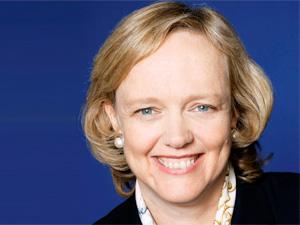
PC maker Hewlett-Packard (HP) is planning a new line of mobile products, and is adopting Android in the wake of the dismal performance of its own webOS platform and products.
According to a ReadWrite report, which has also been confirmed by The Verge, HP has been working on its first Android tablet since "before Thanksgiving" (22 November) and it is expected that it could make its public debut soon.
The report also says sources close to the matter say the HP Android tablet could be one of the first to ship with NVIDIA's latest mobile chip, the Tegra 4, which was unveiled at this year's consumer electronics show. HP is also said to be considering an Android-based smartphone.
This news follows HP CEO Meg Whitman's comments in 2012 that the company would "have to ultimately offer a smartphone because in many countries of the world that would be your first computing device". She has, however, also said HP would not debut a smartphone in 2013, and would instead test the waters with a tablet first.
TouchPad failure
In February 2011, HP unveiled its first stab at the tablet market, the TouchPad, following its $1.2 billion buyout of handheld device pioneer, Palm, in 2010.
The 10-inch tablet ran Palm's webOS operating system. At the time, HP said it was embarking on a "new era of webOS" with the intention of offering the "best mobile experience available". This announcement was accompanied by the release of two webOS smartphones, the Veer and Pre3.
The TouchPad failed miserably in the market though, and the smartphone offerings also failed to capture consumer attention. WebOS was HP's bid to offer devices with fully integrated hardware and software - a strategy that has proven extremely successful for Apple, but which many have failed to replicate.
After just seven weeks in the market, HP announced its plans to exit the webOS hardware space and issued a declaration to retailers to start liquidating TouchPad inventories. The price of the tablet was slashed from $499 to just $99, and its failure was said to be indicative of the difficulties manufacturers faced in trying to compete with Apple's iPad when it came to both pricing and consumer appeal.
Major challenge
HP will face an uphill battle as it tries to re-enter the highly competitive tablet market, and adopting Google's Android OS is not a sure-fire recipe for success.
While the sheer volume of Android tablets sold overshadows Apple's iPad, no single Android tablet has sold nearly as well as the iPad. According to the IDC, worldwide tablet shipments reached a record 52.5 million units in the fourth quarter of 2012.
"The tablet market grew 75.3% year-over-year in 4Q12 (up from 29.9 million units in 4Q11) and increased 74.3% from the previous quarter's total of 30.1 million units," said IDC. It added that this growth was largely attributed to lower average selling prices and a wide range of new product offerings.
By comparison, PC sales in the fourth quarter were down by 6.4% year-on-year with a total 89.8 million PC units shipped. HP managed to beat out Lenovo as the top vendor for the quarter. IDC says: "Consumers as well as PC vendors and distribution channels continued to be diverted from PC sales by ongoing demand for tablets and smartphones."
The iPad continues to lead the tablet market with 22.9 million units shipped in the fourth quarter. Apple's overall market share continues to decline though, on the back of strong competition. The second top tablet vendor is Samsung, which notched up 263% year-on-year growth in its tablet shipments, and close to eight million Android and Windows 8 tablets shipped in Q4.
Snub for Windows 8
According to IDC, Microsoft's foray into the tablet market with the Surface RT saw it shipping just below 900 000 units into the channel, and failing to gain a position among the top five tablet vendors (which includes Amazon, Barnes & Noble and Asus).
The IDC says: "There is no question that Microsoft is in this tablet race to compete for the long haul. However, devices based upon its new Windows 8 and Windows RT operating systems failed to gain much ground during their launch quarter, and reaction to the company's Surface with Windows RT tablet was muted at best."
HP does have some Windows 8 products, but these are primarily aimed at the hybrid ultrabook/tablet space and include the Envy x2 which has a detachable 11.6-inch display, and the EliteBook Revolve, a touch-enabled notebook with a pivoting display.
Tech commentator, John Gruber, says HP's adoption of Android will be a loss for Microsoft: "This might add some context to Microsoft's recent investment in Dell - HP seemingly doesn't see a future in Windows or Windows Phone."
Share